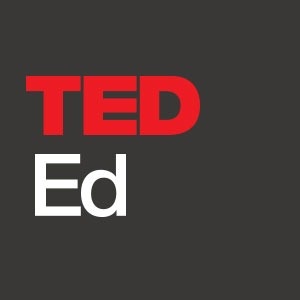2019-04-08
[public] 832K views, 19.9K likes, dislikes audio only
Take a look at the theories behind why earthquakes occur, what makes them so hard to predict and the warning system technologies we rely on today.
--
In 132 CE, Zhang Heng presented his latest invention: a large vase he claimed could tell them whenever an earthquake occurred for hundreds of miles. Today, we no longer rely on pots as warning systems, but earthquakes still offer challenges to those trying to track them. Why are earthquakes so hard to anticipate, and how could we get better at predicting them? Jean-Baptiste P. Koehl investigates.
Lesson by Jean-Baptiste P. Koehl, directed by Cabong Studios.
Sign up for our newsletter: http://bit.ly/TEDEdNewsletter
Support us on Patreon: http://bit.ly/TEDEdPatreon
Follow us on Facebook: http://bit.ly/TEDEdFacebook
Find us on Twitter: http://bit.ly/TEDEdTwitter
Peep us on Instagram: http://bit.ly/TEDEdInstagram
View full lesson: https://ed.ted.com/lessons/why-are-earthquakes-so-hard-to-predict-jean-baptiste-p-koehl
Thank you so much to our patrons for your support! Without you this video would not be possible! Jordan Tang, Juan, Sid, Tracey Tobkin, emily lam, Kathryn J Hammond, Elliot Poulin, Noel Situ, Oyuntsengel Tseyen-Oidov, Latora Slydell, Sydney Evans, Victor E Karhel, Bernardo Paulo, Eysteinn Guðnason, Andrea Feliz, Natalia Rico, Josh Engel, Bárbara Nazaré, Gustavo Mendoza, Zhexi Shan, Hugo Legorreta, PnDAA , Sandra Tersluisen, Ellen Spertus, Fabian Amels, sammie goh, Mattia Veltri, Quentin Le Menez, Yuh Saito, Heather Slater, Dr Luca Carpinelli, Janie Jackson, Christophe Dessalles, Arturo De Leon, Eduardo Briceño, Bill Feaver, Ricardo Paredes, David Douglass, Paul Coupe, Jen, Megan Whiteleather, Mayank Kaul, Ryohky Araya, Tan YH, Ph.D., Brittiny Elman, Ruth Fang, Alex Schenkman, Ivan Todorović and Yanuar Ashari.
/youtube/video/kF54-camgCg
/youtube/video/jhRuUoTnA6g?t=172.87
/youtube/video/Wx9vPv-T51I
/youtube/video/kF54-camgCg
https://www.patreon.com/teded

